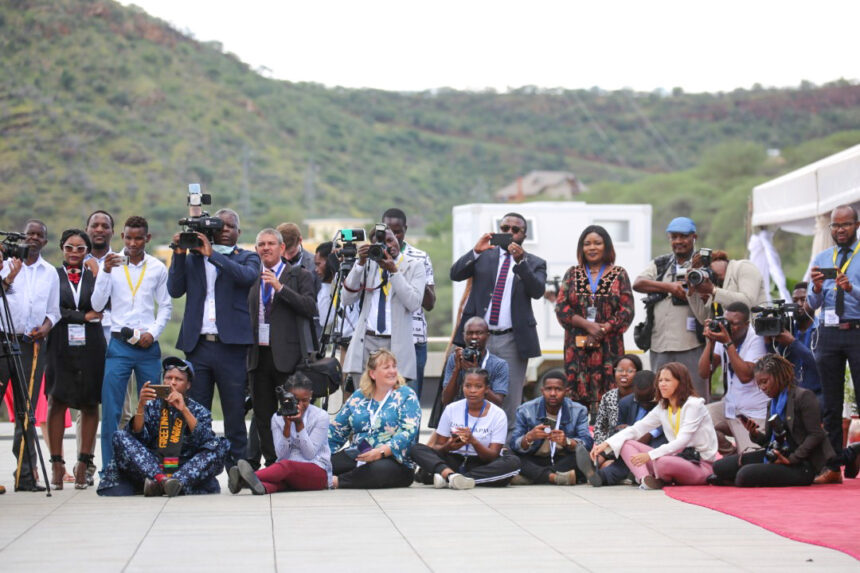Imelda Munika
The rise of AI-generated news has led to concerns about its potential impact on traditional journalism jobs. While AI-generated news can create news content quickly and efficiently, it also has the potential to automate some of the tasks that traditional journalists perform. This could lead to a reduction in the number of journalism jobs available, particularly for entry-level positions.
A conference to discuss the future of Journalism Education in Southern Africa took place at the Village Opera House Tuesday in Windhoek, continued on Wednesday in the Zimbabwean city Bulawayo, and yesterday in Malawi’s capital Lilongwe.
This conference was organised by the Media Institute of Southern Africa (MISA) in Malawi, the Namibia Media Trust (NMT), DW Akademie, the Centre of Innovation and Technology (CITE) in Zimbabwe, and GIZ. This event brought together media managers, journalists and media experts with the aim to discuss their experiences and ideas on the future of journalism education in Southern Africa. Some of the topics discussed were ‘Empowering African AI-Enhancing Journalism Excellence in the Digital Era’, ‘AI in Action-Contemporary Practices in Namibian Newsrooms’, ‘Innovation in the Newsroom: Experiences from Media Innovators from Southern Africa’, ‘Global Trends on the Use of AI in Newsrooms: Insights for Southern Africa’, and a Master Class: small team, big dreams? How a focus on the audience cultivates sustainable growth – lessons from Daily Maverick.
One of the speakers was Ashley Smith, news editor from The Namibian. He said “We are in the process of part three with DW through the Innovation Lab to come up with AI-automated content for our platform. One of the key aspects would be, for example, inputting a print story into an AI-generated content provider, and how that content is then packaged for newsletters, radio voiceovers, and social media”. He added that in terms of things like fact-checking tools, “you asked how we can enhance and create better journals, and I think fact-checking would be a major part of that”.
One potential impact of AI-generated news on traditional journalism jobs is that it could shift the skills and qualifications that media companies are looking for in their employees. Journalists may need to be proficient in data analysis, machine learning and other technical skills to remain competitive in the job market.
Menesia Muinjo, chief of news and programming from NBC, said “Yes, we do use that at the moment, it’s randomly used, and I’m saying randomly because we are yet to come up with newsroom policy guidelines that will really guide how to use it. For example, like the issues mentioned, if you use it for news gathering, how do you credit the reporter or the producer? That is because in journalism, as we learn, we cannot take the work that does not belong to us. So, attribution, we are busy, just like we have been busy with a social media policy.
There is transformation going on now at the NBC, and one of the issues we’re looking at is how we can improve technology. I look at AI as normal technology which will help us to achieve what the business must do at the end of the day, because if my performance and that of the journalist are neutral, it’s not going to really be like the speed of it, the smartness, or do you still have to work hard? But I can confirm that in some programmes, the journalists are using AI, for example, if you come with a video to have it transcribed. So, if it can help to improve that, great; we welcome it”.
It’s important to note that AI-generated news is not meant to replace human journalists. Rather, it is a tool that can be used to augment their work.



